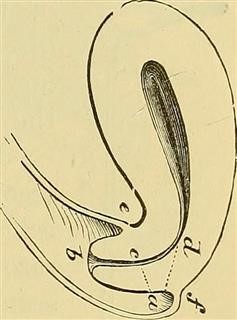The Infertility Website
What Causes Female Infertility Problems
You found the best source for total info and resources for What Causes Female Infertility Problems on the web.
The most common of these procedures are removal of all or part of the colon (colectomy), or removal of the kidney (nephrectomy). Key to the diagnosis of male infertility is a semen analysis, which assesses primarily sperm numbers, sperm movement and sperm form. Counseling about options should be offered to couples who are not physically able to conceive (i.e., same-sex couples or persons lacking reproductive organs). A luteal phase defect results in low production of the hormone progesterone, which is necessary for maintaining a pregnancy. Source : How To Use California’s Department Of Managed Health Care ...
Radiation therapy: If this is aimed near the reproductive organs, it can increase the risk of fertility problems. Diagnosis Most people will visit a physician if there is no pregnancy after 12 months of trying.
Even more Info Around Infertility in Cushing's

Right here are Some Even more Resources on Infertility in Cushing's
The ICSI process takes place following a cycle during which fertility drugs are administered to the female partner to aid in the production of multiple eggs. The new generations of available gonadotropins are produced by genetically engineered mammalian cells (ie, Chinese hamster ovary cells), in which the gene coding for the alpha and beta FSH subunits has been inserted (follitropin alfa [eg, Gonal F] and follitropin beta [eg, Follistim AQ]). [185] Recombinant LH may beaddedtorecombinantFSHprotocolsasanalternative,particularlyuseful in patients with hypothalamic amenorrhea.
Below are Some More Resources on Infertility in Cushing's
The fertilized eggs, now embryos, are allowed to grow and develop in culture media for typically 3 to 5 days. A variety of disorders ranging from hormonal disturbances to physical problems, to psychological problems can cause male infertility. Although many treatment options are now available, in many cases treatment will not work. In many instances, male infertility is caused by testicular damage resulting in an inability of the testicle to produce sperm. Once damaged, the testicle will not usually regain its sperm-making capabilities; this aspect of male infertility is analogous to menopause (though not natural like menopause) for women and cannot usually be treated. Despite medicine�s limited ability to treat male infertility, many successful treatment options are available for its many causes. Besides testicular damage, the main causes of male infertility are low sperm production and poor sperm quality. The Causes of Male Infertility Male infertility has many causes--from hormonal imbalances, to physical problems, to psychological and/or behavioral problems. Moreover, fertility reflects a man�s �overall� health. Men who live a healthy lifestyle are more likely to produce healthy sperm. The following list highlights some lifestyle choices that negatively impact male fertility--it is not all-inclusive: · Smoking--significantly decreases both sperm count and sperm cell motility. · Prolonged use of marijuana and other recreational drugs. · Chronic alcohol abuse. · Anabolic steroid use--causes testicular shrinkage and infertility. · Overly intense exercise--produces high levels of adrenal steroid hormones which cause a testosterone deficiency resulting in infertility. · Inadequate vitamin C and Zinc in the diet. · Tight underwear--increases scrotal temperature which results in decreased sperm production. · Exposure to environmental hazards and toxins such as pesticides, lead, paint, radiation, radioactive substances, mercury, benzene, boron, and heavy metals · Malnutrition and anemia. · Excessive stress!
Even more Details Around Infertility Testing
Fertilizing Capacity of Epididymal and Testicular Sperm with ICSI. (PDF, 5 MB) Frontiers in Endocrinology, 1995. ED may be the consequence of the conversion of androgens to estradiol. Testicular Transplantation and Autotransplantation. (PDF, 8 MB) Chapter 22 of textbook, Extracorporeal and Microvascular Surgery, 1982. It has been suggested that infertility be classified as a form of disability.[22] Causes[edit] Immune infertility[edit] Antisperm antibodies (ASA) have been considered as infertility cause in around 10–30% of infertile couples.[23] In both men and women, ASA production are directed against surface antigens on sperm, which can interfere with sperm motility and transport through the female reproductive tract, inhibiting capacitation and acrosome reaction, impaired fertilization, influence on the implantation process, and impaired growth and development of the embryo. This is called luteinised unruptured follicle syndrome (LUFS). Consulting a nutritionist, for example, could help a young woman suffering from anorexia to put on some weight, which might restart her menstrual cycle. Previous pelvic surgeries involving the fallopian tubes can also increase your chances of infertility.
Previous Next
See also
Infertility Clinic in Bangalore
Infertility by Age
Infertility Doctor Called